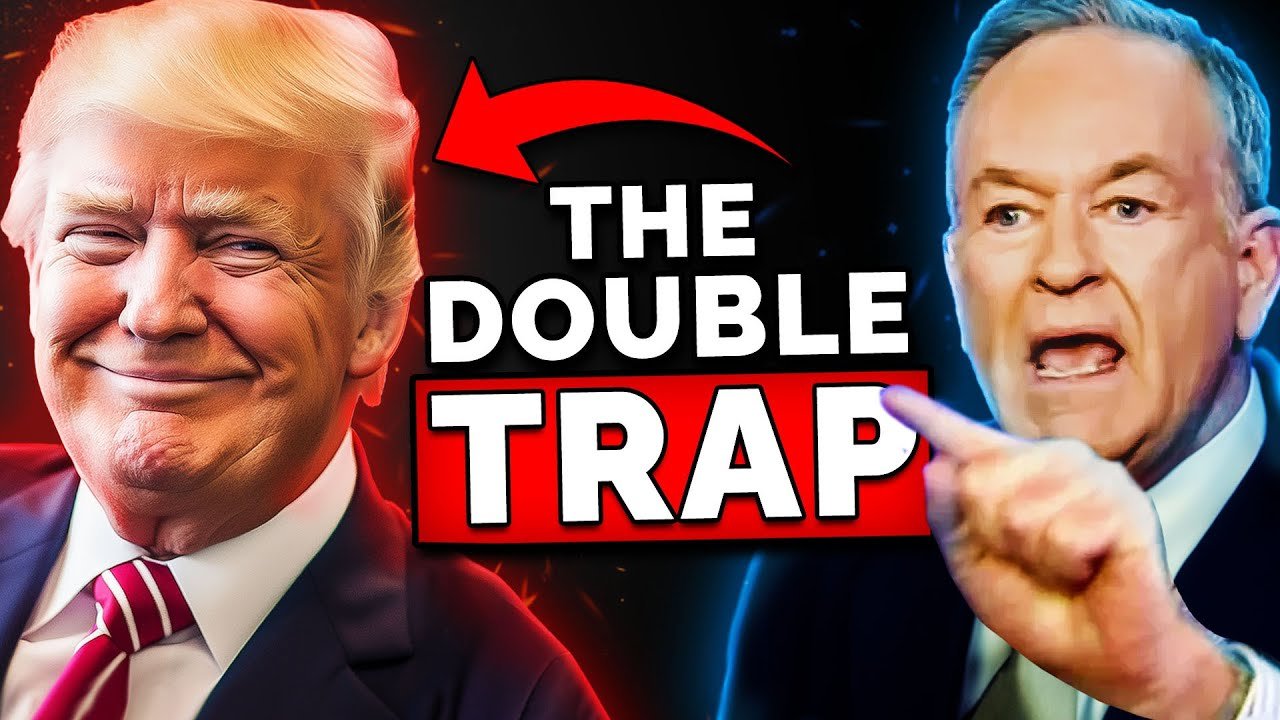Get the 4 emotions you need to make a great first impression every time:
Donald Trump’s Debates: 5 Mental Tricks You Didn’t Notice
Donald Trump has proven himself to be a master persuader. His unlikely rise to prominence in the Republican primaries has riden on the fact that he knows how to work the media during interviews as well as his performances in the GOP debates against the likes of Jeb Bush and Ted Cruz.
When watching the debates, many of his detractors criticize Trump’s apparent lack of substance. For instance, he ducked Megyn Kelly’s question about sexism with a joke about Rosie O’Donnell. He seems to repeat buzz words more than other candidates and often justifies his positions by referring to other people who support his stances, rather than defending them outright. While this may seem like weak arguments, Donald Trump’s debate strategies actually align perfectly with the way humans think and process information. For that reason, Trump’s arguments tend to sink in more than his opponent’s (like Jeb Bush and Ted Cruz) do.
In this video we’ll look at the top 5 relatively unknown psychological truths that Trump exploits to get his point across during interviews and debates.
Link to Scott Adams’ blog:
Subscribe to Charisma On Command:
Connect With Us.
Website:
Facebook:
Periscope: @Charismaon
Or if you want to see my personal stuff (my regular life + me playing music):
Instagram: @CharlieHoupert
Periscope: @CharlieHoupert
source

班代表:
如何在辯論中掌控全場:唐納德·特朗普的說服力策略
在這個分析中,我們將探討唐納德·特朗普如何運用精巧的心理學策略,在辯論中占據主導地位。無論你是喜歡還是討厭特朗普,他的說服技巧都值得深入研究,因為他成功地利用了人類決策的心理學,無需對方意識到。他的策略並非僅僅適用於政治領域,這些技巧同樣能夠幫助我們理解如何影響他人,甚至保護自己不被不良影響所左右。
雙重困境(Double Bind)策略
特朗普在辯論中的一個常見策略是「雙重困境」。這是一種讓對手無論做什麼選擇,最終都處於不利位置的技巧。例如,在一次辯論中,特朗普問杰布·布什是否要道歉,並直接回答「不」,讓杰布陷入了兩難。若杰布選擇道歉,他就表現得軟弱;若不道歉,則被特朗普指責為不願承認錯誤。這樣的框架設置讓對方無論如何回應都會處於劣勢,而特朗普則成功佔據了主導地位。 此外,特朗普還運用了對手的「低能量」形象來進行攻擊。當杰布嘗試反擊時,特朗普則藉機加強其「低能量」的標籤,使得杰布即便想要反駁也顯得力不從心,最終還是讓特朗普贏得了這場心理戰。
重複與簡化
在辯論中,特朗普經常使用一種非常基本且有效的技巧——重複。這不僅是政治語言中的常見手段,也是廣告業和行銷中的經典策略。他會一再強調簡單的觀點,如「我們需要強硬,我們需要力量」等,這些語句簡單而有力,通過重複深入人心。事實上,重複這些簡單的理念,無論在辯論還是日常對話中,都是非常有效的心理技巧,能夠讓人不自覺地認同這些觀點。 正如一些企業利用廣告歌來加深印象一樣,特朗普的言語也在無形中深入人們的潛意識。當一個簡單的觀點反覆出現時,人們往往會在未經深思的情況下接受並捍衛這些想法。
社會證據與權威效應
另一個特朗普常用的策略是社會證據,即「大家都說我贏了」。他經常提到辯論中「所有人」認為他贏了,或是「所有網上調查都說我贏了」。這種策略利用了人們的從眾心理,讓觀眾相信如果大多數人這麼認為,那麼自己也應該這麼認為。人類在做決策時,往往依賴他人的行為來引導自己,特別是當他們感到信息過載時。 除此之外,特朗普還會借助權威人物的支持來加強自己的立場。舉例來說,當他討論稅務政策時,會提到像拉里·庫德洛(Larry Kudlow)這樣的經濟學家支持他的計劃,這樣的話語使他聽起來更有可信度,並將注意力從具體政策本身轉移到權威背書上。
情感訴求與故事的力量
特朗普不僅僅是使用統計數字來支持自己的觀點,更多的是通過情感訴求和生動的故事來打動聽眾。當他被問及關於墨西哥政府是否故意送犯罪分子進入美國時,他的回答並不是一堆數字,而是親自到邊境與邊防人員對話的故事。他通過這些生動的敘事,使問題更具情感衝擊力,這遠比冷冰冰的統計數字來得更加有說服力。 事實上,當我們聽到一個故事時,我們的大腦會自動與其中的角色產生情感聯繫,這使得我們更容易接受這些故事中的觀點。相較於枯燥的數字和理性推理,人們對故事的反應通常更為強烈。
總結
特朗普的辯論技巧揭示了人類在決策過程中常常是非理性的,更多是受到情感、重複、社會證據和故事的影響。這些策略讓他在辯論中成功占據主導地位,無論對方如何反應,最終都在他預設的框架下行動。 理解這些心理學策略,能夠幫助我們在日常生活中更好地影響他人,同時也能讓我們在面對強勢個性時,學會保護自己不被操控。在這個信息爆炸的時代,我們每個人都應該學會識別並運用這些說服技巧,以便在工作、生活和社交場合中取得更大的成功。
I think I would rather dazzle them with brilliance then baffle them with BS … tRump is all about the BS and just repeating everything and yelling louder or talking over his opponents. He keeps repeating fake narratives. BTW he is the WORST businessman … he cannot keep his musinesses in the black for long … has repeatedly declared bankruptcy in the last 15 years. The only people he cuts taxes for are the rich
His tactics may yield a result, but the fallout from his over the top style, have long term repercussions….for example, a growing hatred of the US…and more countries deciding to move trade to other countries. The bully may will the fight, but lose the war.
Watching this back from the future, trumps tax plan was brilliant, it rocketed the economy absorbing the costs of its implementation
For someone living overseas he's just so damn entertaining, but I'm glad he's not my President
We are not just emotional voters
2:52 and then he beat ISIS
Why dont you make another video like this for his 2024 campaign?
Watching in 2024 before Trump wins again
What movie is he citing please?
listening to trump speak i can almost feel my brain rotting. we live in such a world were people are wooed with such cheap tactics lacking basic critical thinking skills as an audience.
Apparently the only way that Joe had to do was just say shut up and that's all. 😂
The arguments are based on hot air and have no substance. Most people eventually realize this which is why Trump is so unpopular even if he does have a large base following. If you really want to be persuasive you need to combine the anecdotal evidence with hard statistical facts
Featuring Donald Trump will not age well.
Stories > Statistics
Trump is a crooked guy who can fool masses…but more than fooling them he cannot do anything…"we are going to win" ended up in letting more than half a million people die during covid without any remorse…
All I hear is Don the Con BULLYING, talking louder and being super rude.
How to win: say whatever tf you want 100x regardless of validity.
We are now at a moment in history where the guy on trial is bullying those that are trying him. Not sure this a wise course of action for this bloke.
TLDR:
How to persuade (and influence or even possibly manipulate) someone and how to recognize patterns of someone does this to you.
USE WITH CAUTION. All POV will be when this is happening to you.
1. Double Bind
This is where all options on a prompt will always benefit them. Saying nothing makes them win, keep saying something makes it look like you’re rude/hiding something and they win.
The only way to get away with this is to create a new frame.
2. Simple Repetition
Repeating key words gets you to remember those words as their or opposing side’s characteristics. This can go good for them and bad for you based on the intonation of the words.
This is why companies have jingles. Repetition sticks well.
The simplest ideas stick around the best, letting you grow better
3. Social Proof
They have a statistic where other people agree with. You might not have even watched previous interviews or it may not be necessarily true. But saying something that other people agree with makes it feel like you’re not the only one
Avoiding negative social proof also is key. Diverting and being defensive avoids attention on their criticisms.
Having social proof from authority also shows that “smart people” support their side.
4. Persuasive Stories > Statistics and Huge Numbers
Rational Evidence is hard to grasp. Emotional evidence makes it easier in a form of a story.
Oh yes the Trump style always works.
So, is this channel not just a course on sophistry? While I see the value, the main point of this channel is how to win via rhetorical manipulation rather than logic and reason, i.e. sophistry. Again, I see the usefulness, but shouldn’t the person with the best evidence win the argument, provided they express themselves clearly?